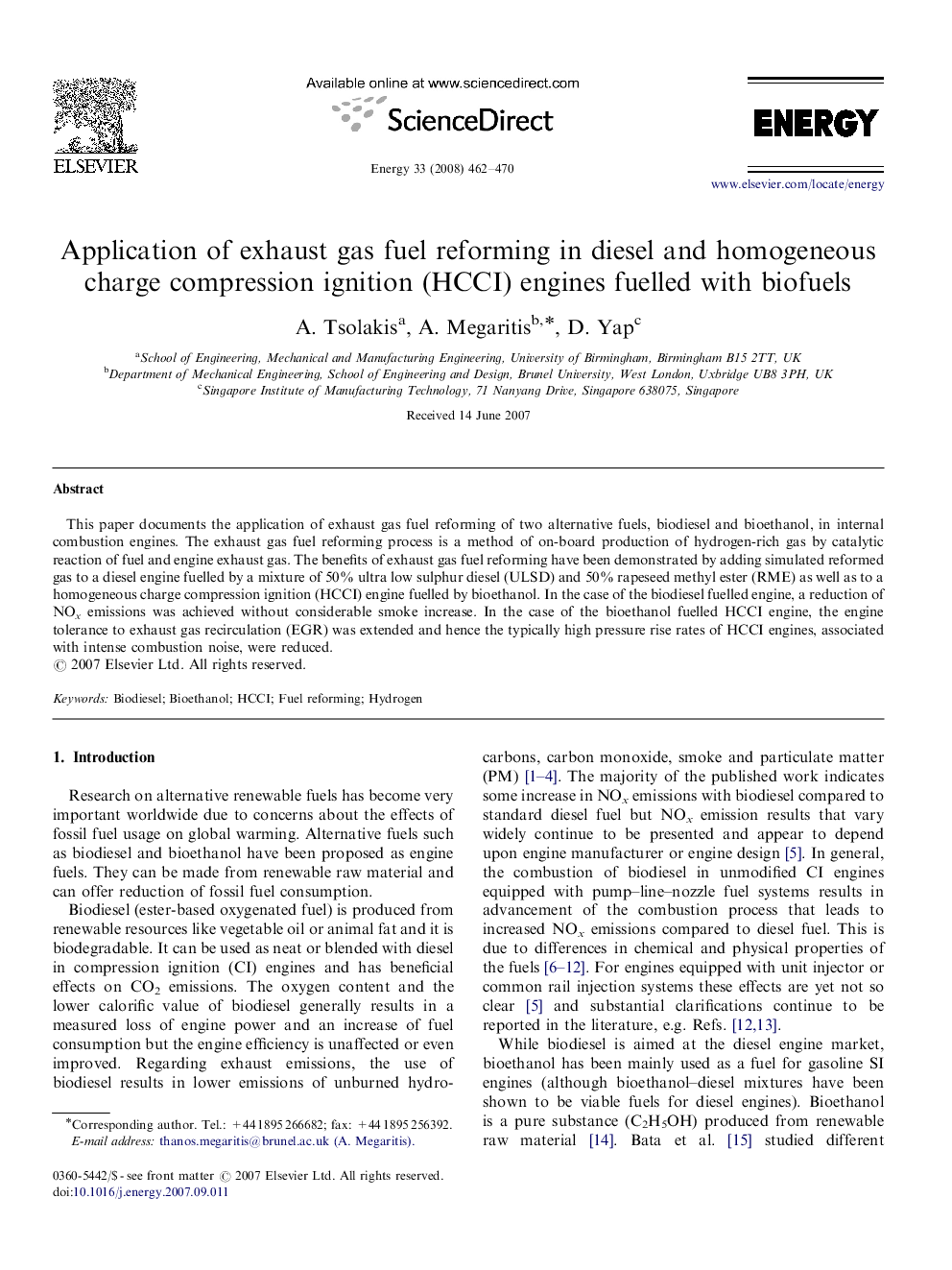| Article ID | Journal | Published Year | Pages | File Type |
|---|---|---|---|---|
| 1735500 | Energy | 2008 | 9 Pages |
This paper documents the application of exhaust gas fuel reforming of two alternative fuels, biodiesel and bioethanol, in internal combustion engines. The exhaust gas fuel reforming process is a method of on-board production of hydrogen-rich gas by catalytic reaction of fuel and engine exhaust gas. The benefits of exhaust gas fuel reforming have been demonstrated by adding simulated reformed gas to a diesel engine fuelled by a mixture of 50% ultra low sulphur diesel (ULSD) and 50% rapeseed methyl ester (RME) as well as to a homogeneous charge compression ignition (HCCI) engine fuelled by bioethanol. In the case of the biodiesel fuelled engine, a reduction of NOx emissions was achieved without considerable smoke increase. In the case of the bioethanol fuelled HCCI engine, the engine tolerance to exhaust gas recirculation (EGR) was extended and hence the typically high pressure rise rates of HCCI engines, associated with intense combustion noise, were reduced.
